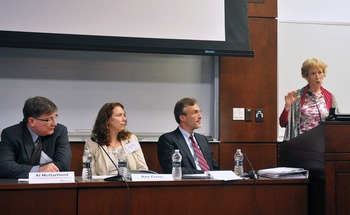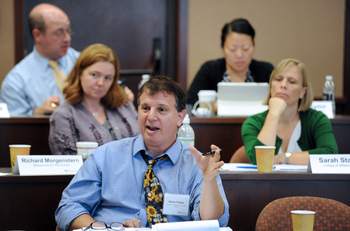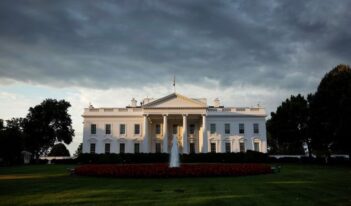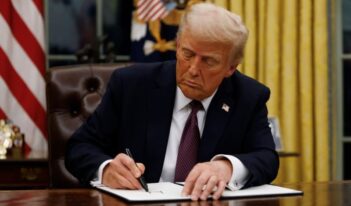
Conference at Penn Law analyzes effects of regulation on employment and offers guidance for policymakers.
Despite a recent jobs report showing that unemployment last month finally fell to below eight percent, debate between Democrats and Republicans over government regulation has not subsided. Republicans continue to claim that excessive regulations are stifling job growth and should be cut back, while Democrats continue to claim that strong regulations are needed to protect the public and that, in any case, some regulations foster new jobs.
Against the backdrop of this heated political debate, the Penn Program on Regulation (PPR) recently hosted a conference that brought together many academic and policy experts to examine the relationship between regulation and jobs.
“Despite politicians’ intense interest in regulation these days, economists and other experts still know comparatively little about regulation’s effects on overall employment,” noted Cary Coglianese, PPR’s director and Edward B. Shils Professor at the University of Pennsylvania Law School.
Under an executive order issued in 1993, regulatory agencies are directed to estimate the impacts new regulations will have on “productivity, employment, and competitiveness.” However, Coglianese noted that “employment impacts are typically given, at best, only cursory consideration in most regulatory impact analyses.”
The PPR conference on “Regulation’s Impact on Jobs” focused on key analytical and institutional issues. The participants addressed the welfare implications of unemployment, including effects on physical and mental health. They also considered ways to improve regulatory analysis of employment effects and offered potential recommendations for changes in regulatory policy.

Lisa Robinson, Harvard Kennedy School
The conference focused predominantly on problems with existing regulatory analysis and on new empirical research on the regulatory impacts on jobs. Different studies have yielded quite different results, depending on choices about data as well as economic assumptions underlying the analyses.
“The consensus of empirical research and theoretical principles, which was generally supported by conference participants, is that regulation usually does not have a significant effect on overall employment levels,” said Adam Finkel, Executive Director of the Penn Program on Regulation and a conference organizer. “Those companies that have to bear costs to comply with regulations often adapt through means other than laying off workers, and regulation also creates markets for firms that hire unemployed workers as a result.”

Julie Hewitt, US EPA
Conference participants stressed the need to test assumptions and refine analytic methods in order for policymakers to rely on consistent impact analyses when implementing regulations. They also discussed incorporating the value of job impacts into standard benefit-cost analysis versus making separate “jobs impact” assessments.
“By relegating employment impacts to separate, qualitative opinions outside of the main cost-benefit analysis, we leave ourselves open to extreme reactions,” Finkel argued. “The typical response to having two separate answers for the effects of a regulation — the net benefit and the separate job impacts — has been either to give the job impacts zero weight, or to give them infinite weight that trumps all other considerations,” he added.
Conference participants discussed the particularly troublesome issue of the welfare effects or losses in happiness from unemployment, and how these should be accounted for when producing a regulatory impact analysis. For example, one participant observed that traditional economic models do not adequately explain whether unemployment causes unhappiness or whether it is unhappy people that tend to be more likely to become unemployed.

Paul Noe, American Forest & Paper Association
Another asked whether it is fair to count the entire amount of the lost salary as the cost of being laid off, given that the firm can now use that amount for other purposes and given that laid off workers have lost salary but still have an opportunity to offer their services to any other employer. Some participants urged research that would inform estimates of a “reservation wage,” which is one measure of the surplus value a worker places on holding a job as opposed to looking for a job. Other attendees called attention to the health effects from unemployment as well as to the stigma associated with job loss, both of which obviously affect human happiness.
In commenting on several papers presented at the conference, Sarah Stafford, a Professor of Economics, Public Policy and Law at the College of William and Mary, added even more complexity to the equation by pointing out that the effects of unemployment on human happiness and welfare extend well beyond the unemployed individual.
Beyond just counting jobs losses and valuing their consequences, regulators also need to consider how these impacts are distributed across different segments of society, several participants noted. A given regulation may well contribute to job losses in one sector or region but help generate new jobs in other sectors or regions. Job losses to older workers may have different consequences than job losses to younger workers.

Adan Finkel, Penn Program on Regulation
These kind of distributional effects matter to politicians who are frequently confronted by constituents and interest groups affected by regulations. Yet, more than one conference participant questioned whether the U.S. political system can effectively handle important issues like unemployment and regulatory policy.
The challenges our political system faces was a theme of the conference’s keynote speaker, Mickey Edwards, Director of the Aspen Institute-Rodel Fellowships in Public Leadership and former member of the U.S. House of Representatives. Drawing on his personal experience in Congress as well as a new book he has written, Edwards admonished many politicians for placing their political party ahead of their duties to the American people.
In concluding the conference, Coglianese noted that no matter what the economic research shows, “regulation’s impact on unemployment is a politically important issue, and in a democracy it is important to take such issues seriously, to analyze them carefully.”
Establishing research to support improved regulatory impact analyses will allow policymakers not only to make better-informed decisions but will also help members of the public in expressing their views about regulatory policy, Coglianese suggested. His hope is that research like that presented at the conference can ground regulatory debate more in evidence than in unproductive partisan debate.
Held in Philadelphia at the University of Pennsylvania Law School, the conference was a follow-up to an earlier workshop that the Penn Program on Regulation held this past June in Washington, D.C. The research presented at both the Washington workshop and the Penn Law conference was supported by the National Science Foundation.



